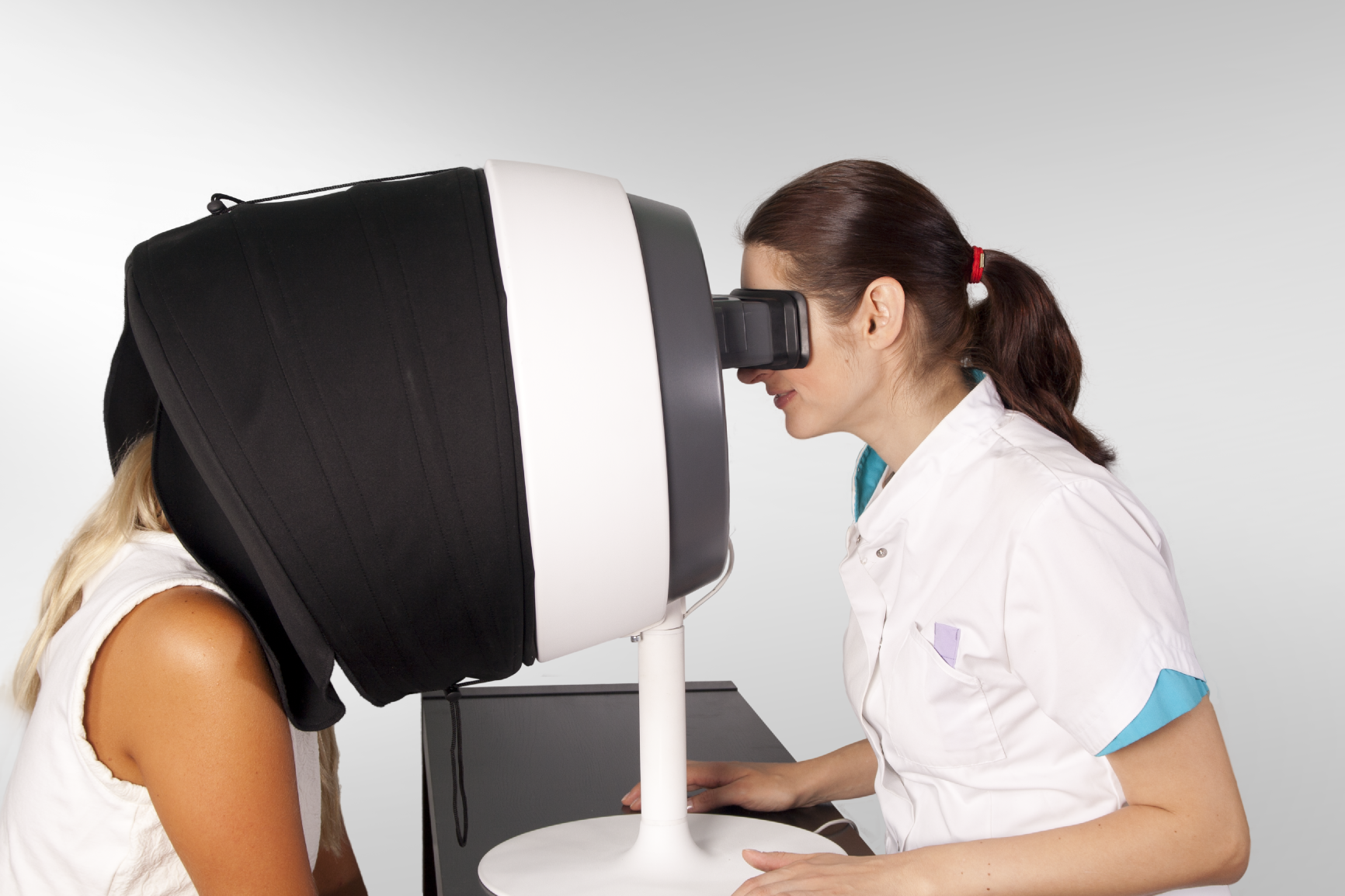Most of us rely on our own analysis, feedback from unreliable sources and trial and error when it comes to knowing our skin and what it needs. Who can we really trust when it comes to our skin?
When was the last time someone closely examined your skin? For many of us, we rely on what we THINK we know about our skin.
Perhaps a makeup artist quipped that you had “dehydrated” skin, or a sales assistant trying to sell you a fancy cream insisted something completely different. Maybe you battled acne in your youth and haven’t really taken into account that over time, your skin has changed.
With these mixed signals in our minds, wading through the jargon and rhetoric marketing companies use to sell you the latest “must-have product” makes finding the right regime nigh on impossible.
Unless you really know your skin type and exactly what it needs at any given time, it can be too easy to fall into the trap of purchasing something purely because it promised the skin of your dreams. Who hasn’t been lured in by the dream of Instagram filter-like skin, only to be disappointed when that product didn’t live up to expectations or fit our skin type?
The reality is, all skincare regimes and products take time to work, so bouncing from one new thing to the next too quickly won’t yield results. Likewise, trying too many products at a time will also make it difficult to identify which (if any) is working.
Where to from here…and who can we really trust when it comes to our skin?
It sounds simple but a professional is your best bet. Whether it be a dermatologist, an aesthetician or a dermal therapist – skin professionals love skin and love what they do, and most seem to genuinely rejoice in being able to improve a client’s confidence by improving their skin.
Professionals like these have the training and an extensive understanding of not only skin physiology, structure, and function, but also knowledge of various skin conditions and how to best treat them. Yes, they will recommend treatments and products for you to try – the key difference is that a skin professional has the knowledge to back it up.
Skin analysis
The first step to great skin is a professional skin analysis as this will help a clinician determine your true skin type. Although not all skin types are problematic, each one can benefit from being matched with the correct treatments and skincare.
Talking about your skin goals with a professional is highly encouraged, as is actively getting involved in your skin journey (because it is a journey, a process!) A proper skin assessment will allow you to engage in the process, as well as allowing your provider to get a deeper understanding of your underlying skin conditions and needs, rather than just treating the symptoms caused by it.
Your treatment provider can cater towards your individual skin needs and design a treatment program along with skincare products and/or recommendations based off your unique skin requirements.
What is a professional skin analysis?
Most professional skin analyses will be made up of several components, the first using a skin analysis machine or skin imaging device to identify factors not readily seen with the naked eye. This will help give you a true visual representation and understanding of your skin as well as providing a benchmark that allows both you and you clinician to revisit and re-assess your skin’s progress at a future point.
Some of the key things that can be identified with a skin scanner are: hydration and skin lipid levels, underlying inflammation, melanin levels, UV exposure history, pigmentation (including sun-damage, melasma, liver spots, age spots and sunspots), phototype, erythema (redness and flushing), vascular damage, surface texture (i.e. pores, wrinkles and fine lines), skin colour, burn time, cellular damage and loss of structural integrity.
Aside from using a skin analyzer, a clinician is also likely to gather valuable information by discussing things like genetic history/inherited characteristics, lifestyle and diet factors, medical and cosmetic history, skin type, triggers and contributing factors, related symptoms and/or effects of that particular condition.
Treatment plan
After a thorough investigation of your skin, your provider will discuss the primary cause of its condition and devise a suitable treatment plan, including routines you can do at-home and what products you should be using. Making these determinations is crucial to the success of improving your skin.
Quite often your skin might require a multi-pronged approach with several different treatments working in tandem towards a common goal. Sometimes there may be several concerns that need to be addressed, in which case you can discuss what your priorities are with your treatment provider.
Armed with the correct knowledge, you and your skin therapist can work wonders for your skin, putting your skin goals well within reach.
Final thoughts
If you’re ready to improve your skin, start with a professional skin assessment. With the development of an accurate and detailed skin plan – one that’s tailored to your individual needs, you’re on the path to success. Together, armed with the correct knowledge, you and your skin therapist can work towards making your skin goals a reality.
Interested in professional skin analysis? To learn more contact beauty wholesaler and salon suppliers, The Global Beauty Group on 1300 006 607 to find a treatment specialist in your area.



No Comments